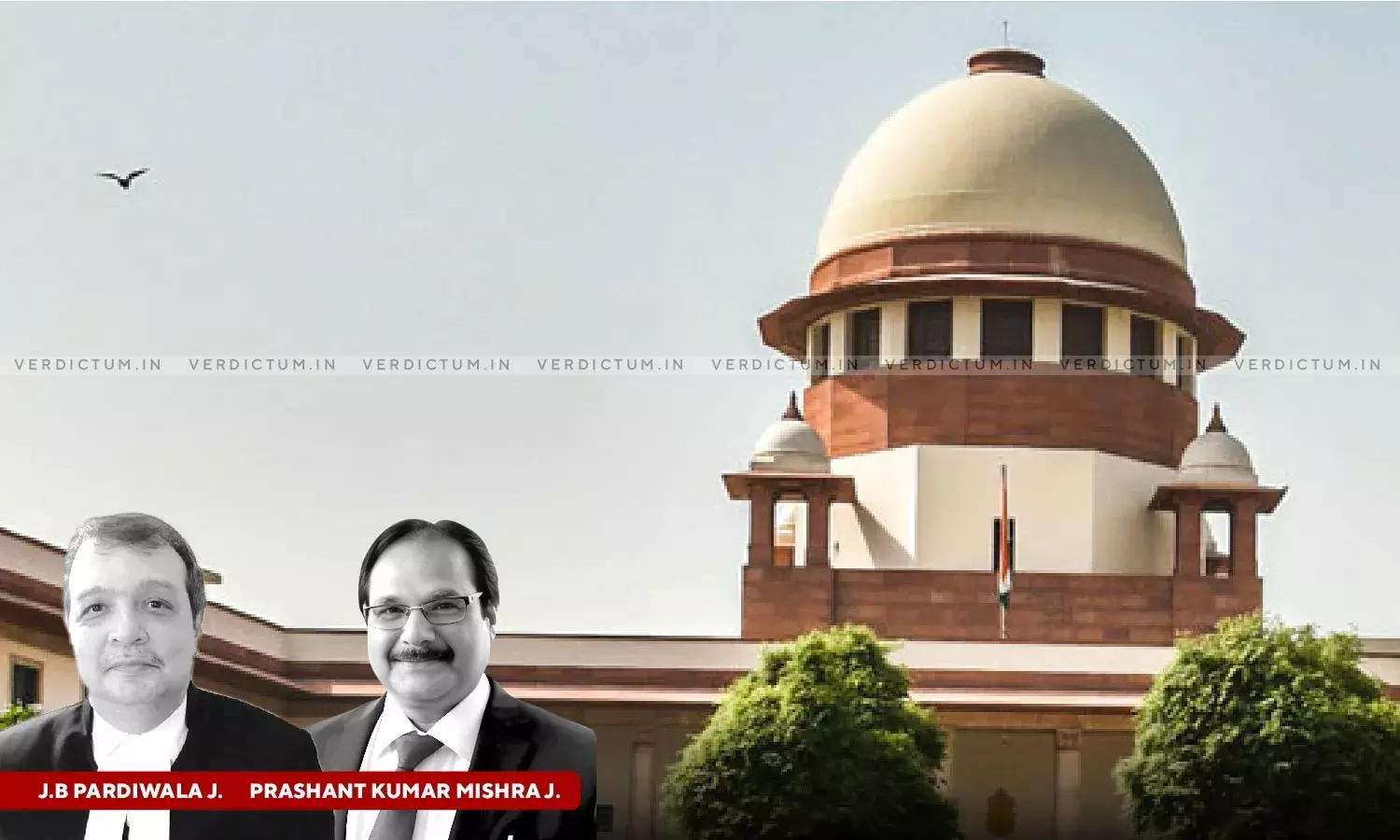Appellant's Behaviour Was Abnormal, Indicating That He Was Suffering From Insanity At Time Of Incident: SC Acquits A Man Who Allegedly Killed His Grandfather

The Supreme Court has acquitted a man who allegedly killed his grandfather. While referring to Section 84 IPC, the Court observed that the Appellant's behavior was abnormal and indicated that he was suffering from insanity at the time of the incident. The Court observed that the Appellant was prescribed the tablet Lorazepam, a psychotropic substance apart from being an anxiolytic agent.
Further, the Apex Court has also reiterated that the judgment of acquittal can be reversed by the Appellate Court only when there is perversity and not by taking a different view on reappreciation of evidence.
The Court set aside the High Court's conviction order against the Appellant under Section 302 IPC and restored the Trial Court's order of acquittal.
“When the appellant-accused was arrested, PW-14 medically examined him and found that he appeared to be clinically under the influence of some psychotropic substance. This witness also admitted that in the discharge summary of the appellant-accused (Exhibit-D), he was prescribed the tablet Lorazepam which is a psychotropic substance apart from being an anxiolytic agent. It is also to be seen that after the appellant-accused attacked the deceased by a sharp-edged weapon which was later snatched by PW-1, he was trying to take out the windpipe from the neck of the deceased which was already cut. This action of the appellant-accused was weird and abnormal. This is clearly indicative of the fact that he was suffering from insanity at the time of incident”, the Bench comprising Justice J.B. Pardiwala and Justice Prashant Kumar Mishra observed.
Senior Advocate A. Sirajudden appeared for the Appellants, and Advocate Sameer Abhyankar appeared for the Respondent.
An FIR was filed by the daughter of the deceased, Reeta Rai (Prosecution Witness 1/ PW1), who informed the police officers that her father had been murdered by his grandson with a sharp-edged weapon. During the trial, the Appellant pleaded insanity and was referred to the Psychiatric Unit. The Trial Court considered the matter within the ambit of Section 84 of the IPC and held that the appellant-accused was incapable of knowing the nature of his acts by reason of unsoundness of mind. Therefore, the Trial Court acquitted the Appellant. A set of Criminal Appeals were filed challenging the judgment and order of the Sikkim High Court, whereby the Court reversed the acquittal order of the Trial Court, convicted the Appellant/accused for the offences punishable under Sections 302 of the IPC and sentenced him to undergo simple imprisonment for life.
The Bench noted that the Appellant's behaviour during the incident was weird and abnormal. The Court observed that the Appellant was prescribed the tablet Lorazepam, a psychotropic substance apart from being an anxiolytic agent.
Furthermore, the Court reiterated that the Appellate Court may only overturn a judgment of acquittal if there is clear evidence of perversity rather than simply having a different perspective upon re-examining the evidence. The Court emphasised that if the Trial Court's decision is reasonable, the Appellate Court should not interfere with the acquittal and impose conviction on the defendant simply because there is another possible interpretation of the evidence. The Court referred to the case of State of Rajasthan v Abdul Mannan [(2011) 8 SCC 65]. The Bench noted that the High Court overturned the order without providing reasoning that the Trial Court's decision was unreasonable.
The Bench observed, “It is settled that the judgment of acquittal can be reversed by the Appellate Court only when there is perversity and not by taking a different view on reappreciation of evidence. If the conclusion of the Trial Court is plausible one, merely because another view is possible on reappreciation of evidence, the Appellate Court should not disturb the findings of acquittal and substitute its own findings to convict the accused. See State of Rajasthan vs. Abdul Mannan (supra)”.
Accordingly, the Court set aside the impugned judgment and order of the High Court and affirmed the acquittal order of the Trial Court.
Cause Title: Rupesh Manger v State of Sikkim (2023 INSC 826)

